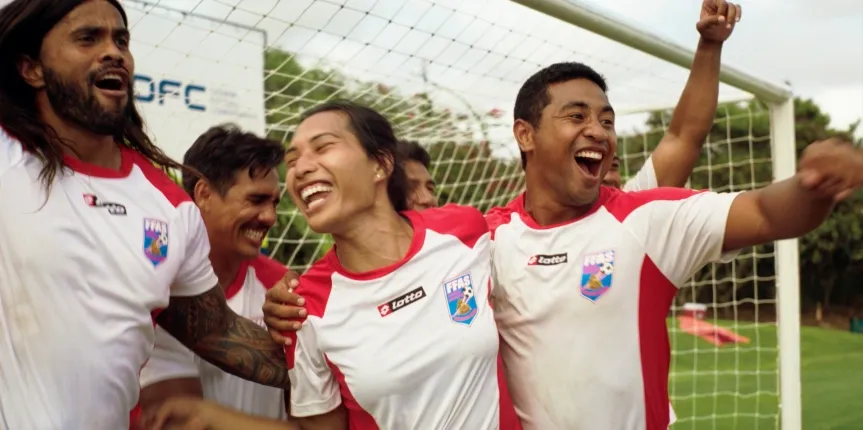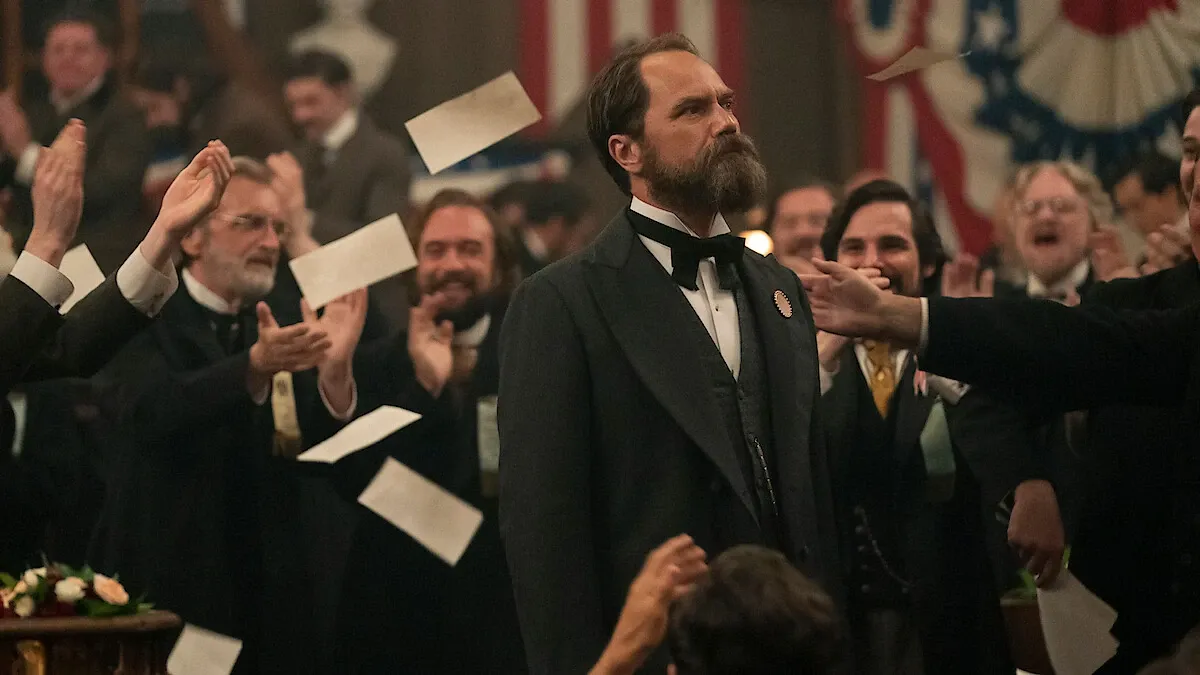Buying into your own hype is dangerous. The moment you believe you’re the cat’s pajamas is when you lose sight of what made others fall in love with your work in the first place.
Such is the case with Taika Waititi, the New Zealander who charmed the world with his off-beat comedic dramas like Hunt for the Wilderpeople and the screwball mockumentary What We Do in the Shadows. After his Oscar winning Jojo Rabbit (which I loved), Waititi boarded the Marvel-train and made himself into a brand all of its own.
But after the disastrous release of Thor: Love and Thunder and numerous cameo roles, all of which felt like the same shtick, Waititi’s shine has started to wane.
In that sense, Next Goal Wins feels like a perfect comeback vehicle. It’s an underdog story that’s based on true events, featuring a native tribe from American Samoa battling for recognition, and has an unlikeable lead who has severely bought into his own hype.
It’s also supremely apt that, like the team featured in the film, Waititi fumbles the ball at every turn. Next Goal Wins isn’t just a bad film, it’s at times an offensive misfire that makes us question whether or not Waititi ever held the magic touch we thought.
The only people who come out of this mess unscathed are the cast, who are all charming to the core. Especially Kaimana, the non-binary actor who plays Jaiyah Saelua, the first trans-woman FIFA star in history. In Polynesia, Saelua is a fa’afafine, a third gender recognized by society. Her place in the team is never in question. “She’s a rare flower. Imagine how dull the world would be without flowers,” one of the players explains.
In Waititi’s film, Saelua becomes the lightning rod for all that is offensive. She is the focus of all the insults, including dead naming and sexual harassment, but the majority of her arc is to serve the growth of Michael Fassbender’s white cis coach. Even after he viciously refuses to accept Saelua’s name and gender, prompting her to punch him in anger, the film treats Saelua as the one who needs to apologize.
Indeed, that’s precisely what she does, only to prompt a half-assed “I’m sorry I called you the wrong name” in response. After that, she becomes a coach for the coach, teaching him how to live through soccer again. Everything else becomes set dressing, even a heartbreaking moment where Saelua reveals she’s stopped taking hormones to fit in better with the team. Is this the scene where Fassbender’s coach finally breaks the walls down to deliver a heartfelt acceptance of who Saelua is? Nope. He reminds her that the team needs her skills, and that’s it.
I want to believe that Taika Waititi isn’t intentionally malicious. More likely he’s just so unconcerned with making sure nothing gets in the way of his brand of snarky, often cruel humor. Something which has only gotten worse throughout the years. Looking back at his early works, you can see the irreverent style there from the very beginning. But the undercutting always served a greater purpose. It revealed character, and often led to heartfelt reconciliation in one way or another.
In recent years, and especially in Next Goal Wins, that humor lacks closure. Its only purpose now is to serve the Waititi brand, which is to not take anything seriously. Sincerity is frowned upon. Which isn’t in and of itself a bad thing, but when it gets in the way of everything else, it grates.
Take, for example, a scene where a timid player is encouraged to share their feelings with the team. He hesitates, clearly holding back something. Then, finally, he relents and tearfully explains how this past year, his parents have been arrested due to alcoholism, and he’s in the worst place he’s ever been.
And then, for a joke, Waititi cuts him short as the team has something else to focus on. It’s meant to be played for laughs, but comes across as needlessly cruel in a film that shouldn’t go into that dark territory with its humor.
Similarly, Waititi plays up the American Samoan culture as one of childlike naïveté. As if the entire culture is stuck in arrested development, and the island run like a children’s daycare. Real-life issues, like massive poverty, alcoholism, and shorter lifespans stemming from colonialism, are treated like jokes at the expense of the natives. It’s meant to be charming, and the film even tries to have it both ways by playing with the idea that they’re putting on a show for the white man, but it never goes anywhere. Waititi is too busy to get on with the next joke.
So, as a result, everything must be taken at face value, because the film is so terrified of revealing what it really thinks. Waititi even casts himself as the narrator of the story, and he’s the first thing we see, and it’s incredibly off-putting. He plays the local minister, complete with an obviously fake mustache, and informs the audience that what they’re about to see is a piss-take. When he re-appears halfway through the movie, there’s an insinuation that his congregation is a fake, and is there to take half of everyone’s salary as tithe for the church.
It doesn’t add to anything, and it’s probably meant to be a zany gag, but when combined with the childlike depiction of the natives, it only adds to the feeling that Waititi is laughing at them. Not with them.
All of this is made worse by the fact that the cast is delightful, for the most part anyway. Fassbender brings his A-game to a terrible part, and manages to wring out humanity from it when you least expect. Kaimana is a star in the making, and easily the highlight of the film. David Fane and Rachel House are funny and charming, even when the material isn’t.
Next Goal Wins shares its name with a Netflix documentary. They both tell the same story, only the documentary is everything Waititi’s film isn’t. It’s heartfelt, lovely, and thoroughly inspirational. It helps us understand why this sport means so much to people, and why a win, any win, can make the difference.
If only Waititi wasn’t so blinded by his brand, he could have recognized that potential, too.













